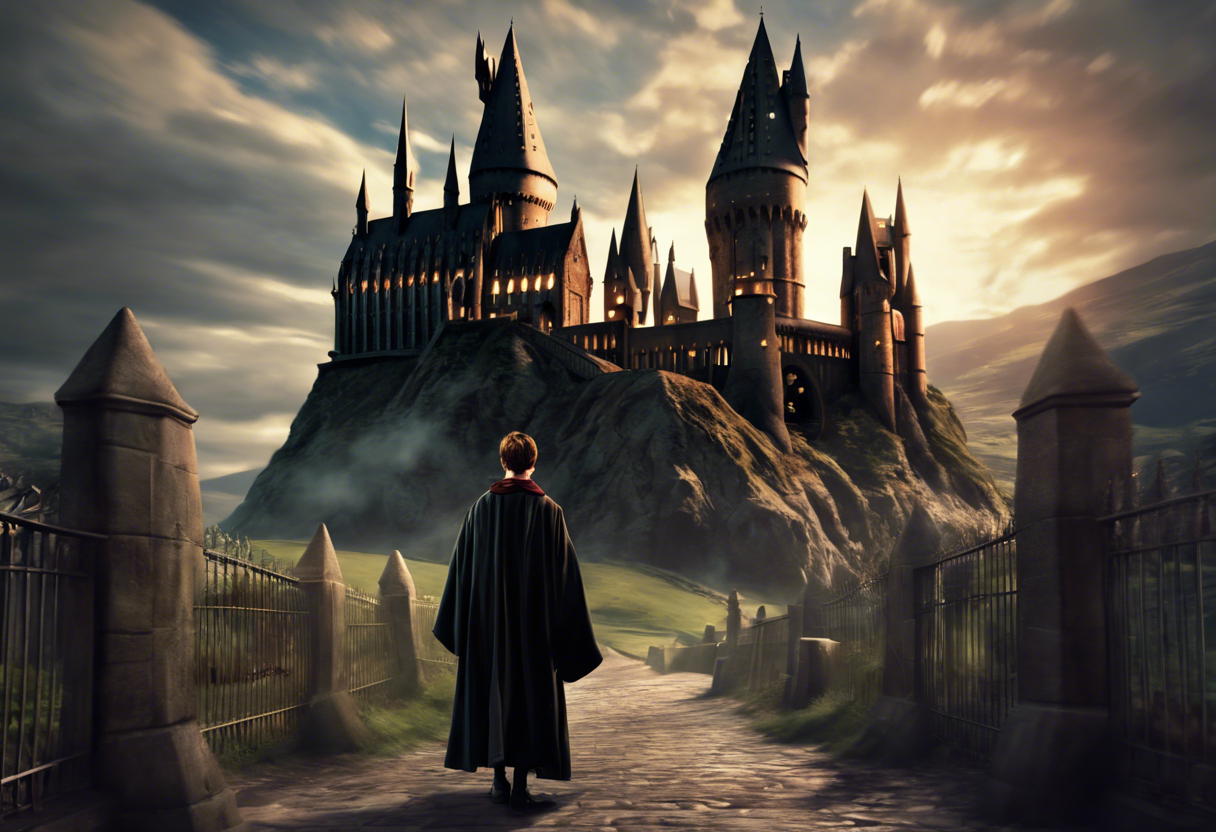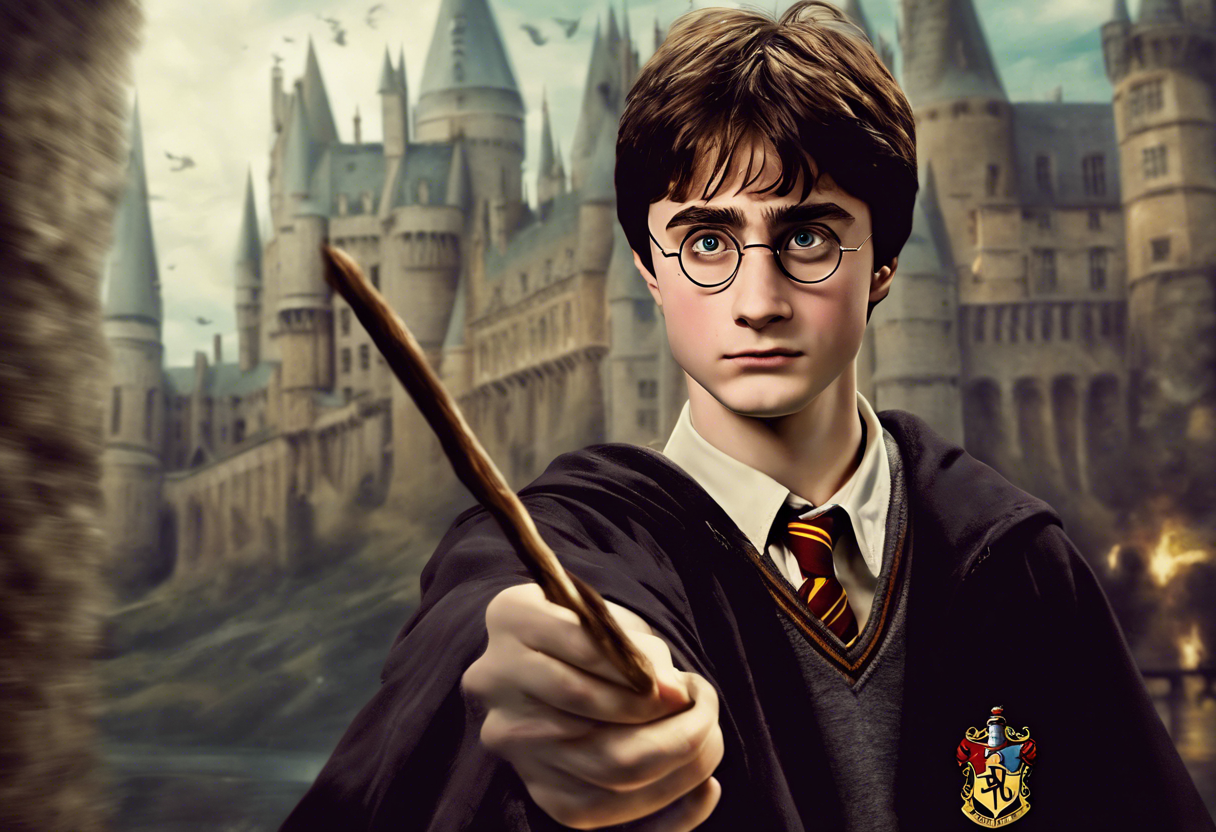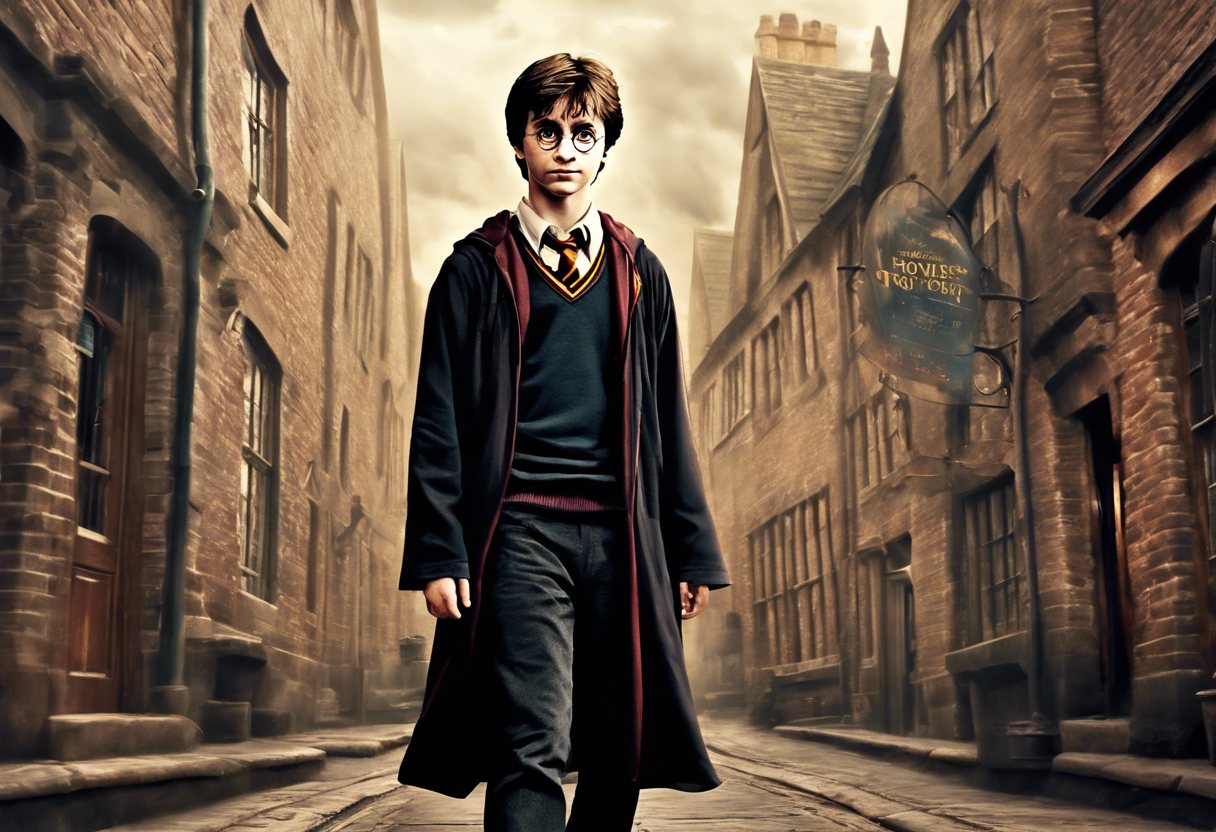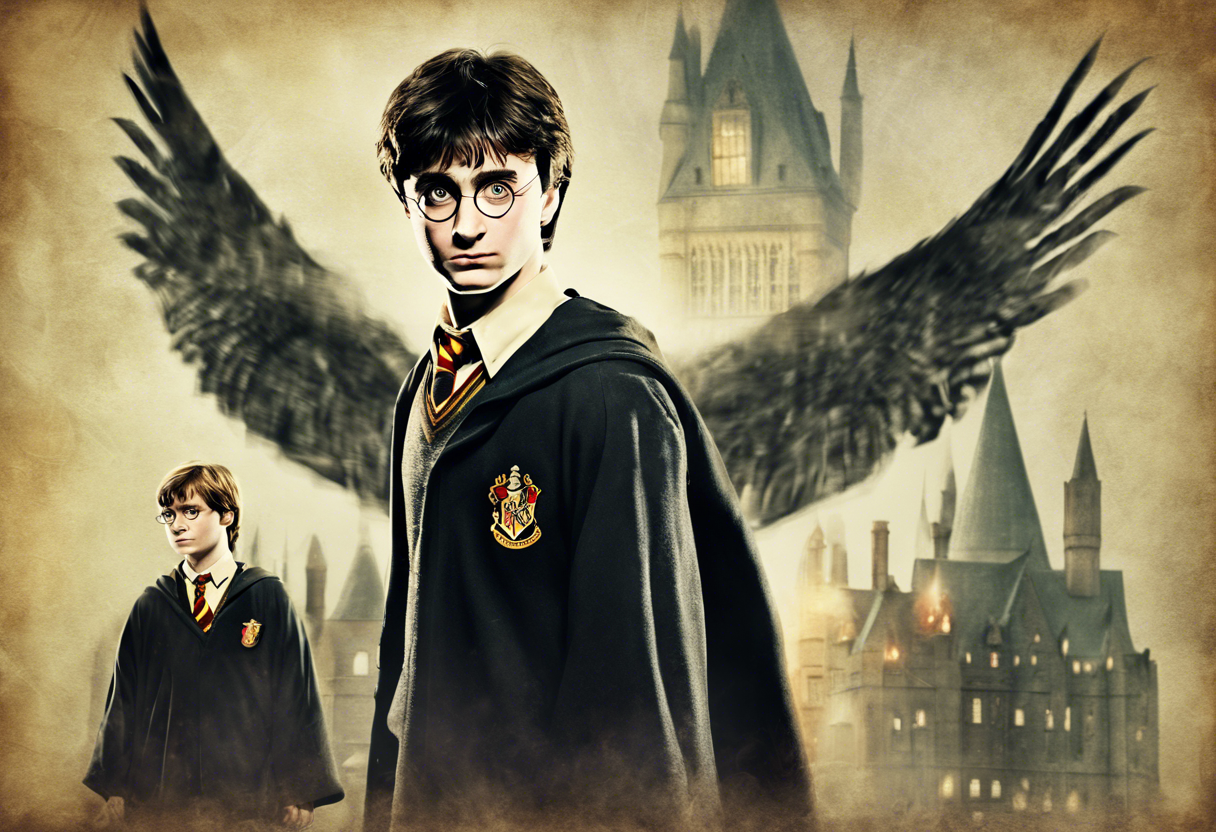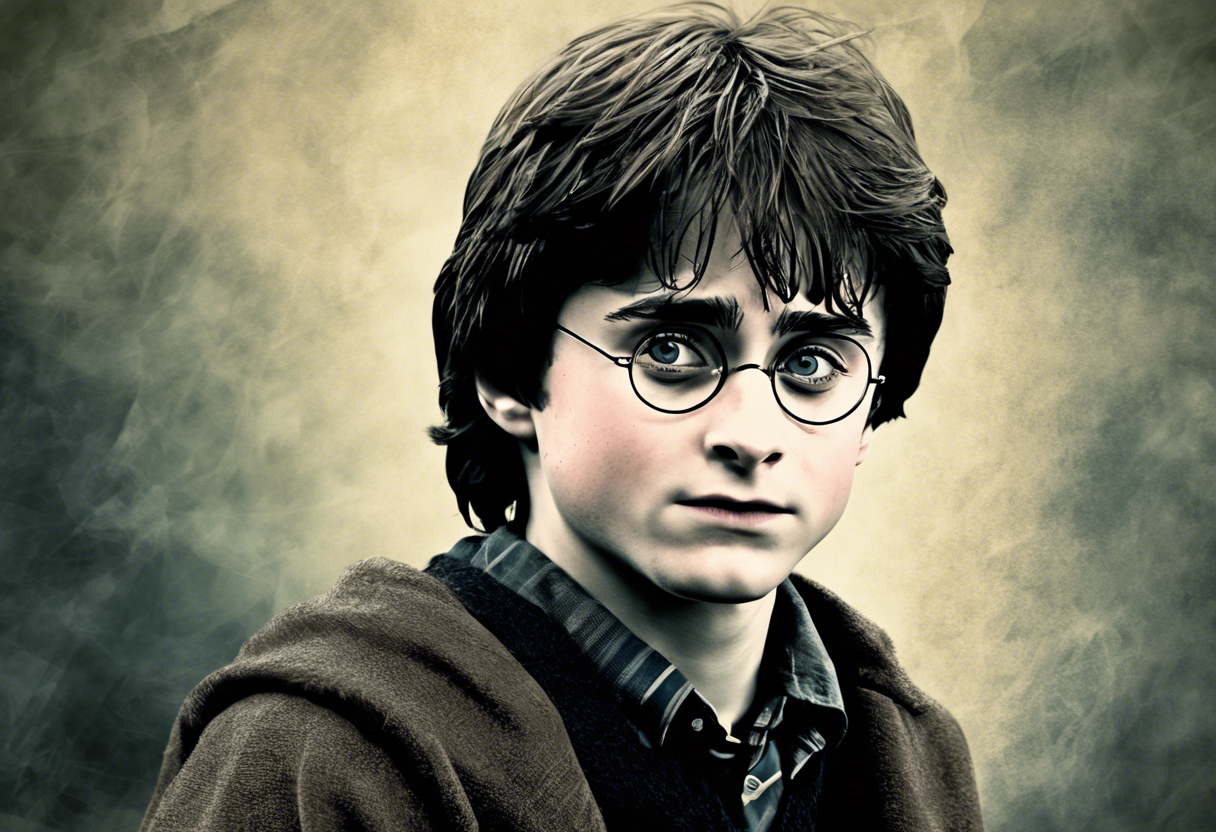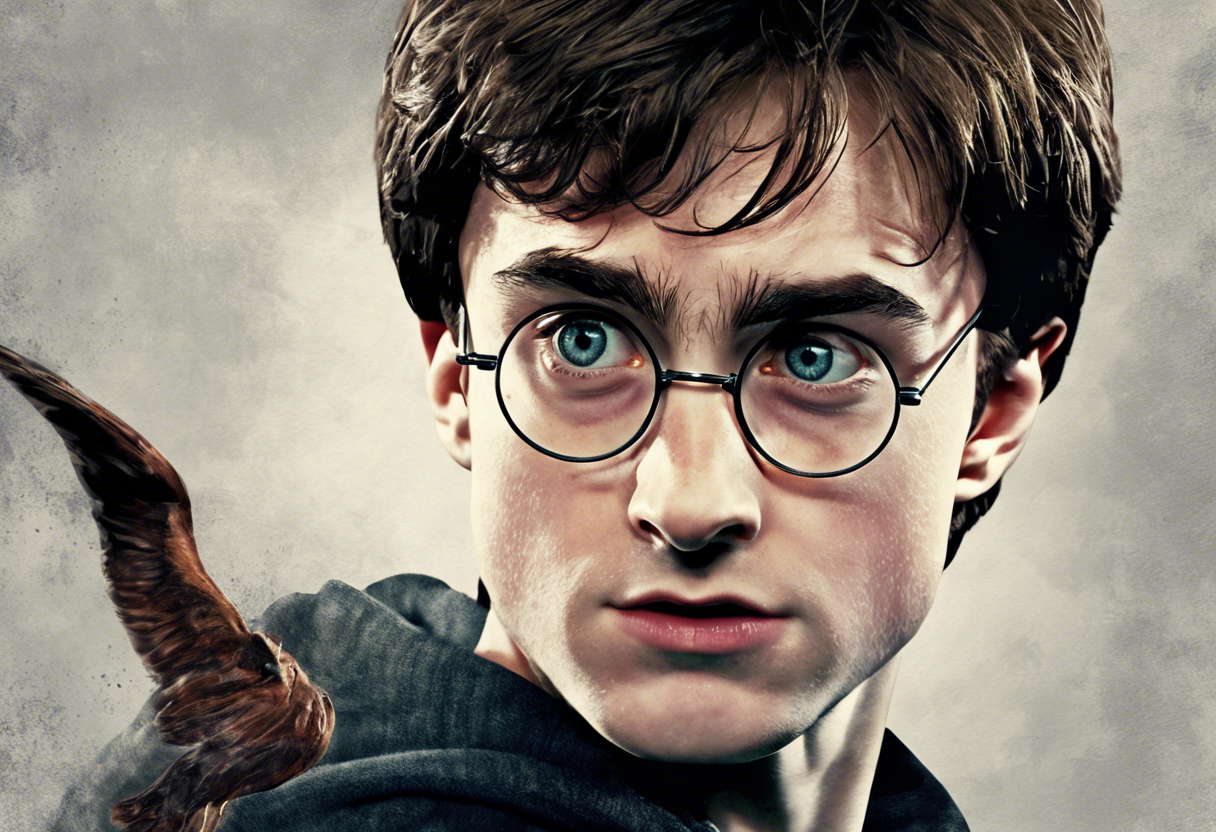Contents
Harry Potter: The Iconic Hero of the Wizarding World
Introduction
Harry James Potter is the central and beloved character of J.K. Rowling’s seven-book series, which has been adapted into a successful film franchise. Created by Rowling in 1990 while she was waiting for a train, Harry was initially conceived as a "scrawny, black-haired, bespectacled boy" who is unaware of his magical heritage [1][4].
Harry’s backstory is marked by tragedy; he is an orphan whose parents, James and Lily Potter, were murdered by the Dark wizard Lord Voldemort when Harry was just a baby. However, Harry survived the killing curse, which rebounded and left him with a distinctive lightning-shaped scar on his forehead. This event made Harry famous in the wizarding world and set the stage for his journey at Hogwarts School of Witchcraft and Wizardry.
Throughout the series, Harry’s defining traits include his bravery, loyalty, and a deep sense of justice. These traits, along with his humble and modest nature, make him a compelling and relatable character. Harry’s role in the narrative is that of the hero who must confront the dark forces of the wizarding world, particularly the return of Lord Voldemort.
Role in the Story
Harry’s storyline spans seven years, from his discovery of his magical identity at the age of eleven to his final battle with Voldemort. The series begins with Harry Potter and the Philosopher’s Stone, where Harry learns about his parents and his own fame in the wizarding world. He then embarks on a journey to Hogwarts, where he forms lasting friendships with Ron Weasley and Hermione Granger.
Throughout the series, Harry faces numerous challenges and conflicts. He must navigate the complexities of school life, confront the increasing threat of Voldemort, and uncover the secrets of his own past. Key events include his encounters with the Mirror of Erised, his participation in the Triwizard Tournament, and his quest to find and destroy Voldemort’s Horcruxes.
Harry’s relationships with other characters are pivotal to the story. His mentorship under Albus Dumbledore provides him with the wisdom and guidance he needs to face his destiny. His friendships with Ron and Hermione offer emotional support and a sense of belonging, which are crucial in his battles against darkness. Additionally, his complicated relationship with Severus Snape, who is revealed to be a complex and ultimately redeemed character, adds depth to the narrative.
Character Analysis
Harry Potter’s personality is multifaceted and evolves significantly over the course of the series. He is described as brave, caring, curious, bad-tempered, insolent, and stubborn [2].
Harry’s bravery is one of his most defining traits. He consistently puts himself in harm’s way to protect others, even when it means facing great danger. His caring nature is evident in his strong friendships and his willingness to sacrifice for those he loves.
However, Harry also has his flaws. He can be impulsive and sometimes acts without thinking, which often leads to trouble. His bad temper and stubbornness are traits that he struggles with throughout the series, but they also contribute to his determination and resilience.
One of the most compelling aspects of Harry’s character is his emotional vulnerability. The death of his parents and his subsequent mistreatment by the Dursleys have left emotional scars. His experiences at Hogwarts, particularly his encounters with the Mirror of Erised and his connections to Voldemort, further deepen his emotional sensitivity [3].
Themes and Symbolism
Harry Potter embodies several key themes and symbolic elements that are central to the series. His lightning-shaped scar is a symbol of his survival and his destiny. It connects him to the past, to the trauma of his parents’ death, and to the ongoing battle against Voldemort. The scar also symbolizes Harry’s emotional sensitivity, as it hurts him whenever hatred is directed at him [3].
The Mirror of Erised is another significant symbolic element associated with Harry. This magic mirror forces Harry to confront his deepest desires and fears, symbolizing his growing self-awareness and personal growth. Unlike Voldemort, whose desires are selfish and ego-driven, Harry’s desires are noble and centered on the greater good [3].
Quidditch, the sport played at Hogwarts, is also symbolic of the deeper virtues taught at the school. It represents the importance of teamwork, cooperation, and the responsible use of magical powers. Harry’s success in Quidditch is not just about personal glory but about contributing to the team and upholding the values of Hogwarts [3].
Cultural Impact
Harry Potter has had a profound cultural impact since the publication of the first book in 1997. The series has been translated into numerous languages and has sold millions of copies worldwide. The film adaptations, starring Daniel Radcliffe as Harry, have also been highly successful and have helped to further globalize the franchise.
Harry Potter has become a cultural icon, inspiring countless fans with his story of courage, friendship, and the battle between good and evil. The series has spawned a vast array of merchandise, theme parks, and spin-offs, including the play Harry Potter and the Cursed Child.
The character of Harry Potter has also influenced popular culture, with references to the series appearing in various forms of media, from television shows to music. The franchise’s impact extends beyond entertainment, as it has also inspired social movements and charitable initiatives, such as the Harry Potter Alliance, which uses the series as a platform to promote social justice and literacy [1].
Critical Reception
Harry Potter has received widespread critical acclaim for both the books and the films. Critics have praised the series for its richly detailed world-building, compelling characters, and the depth of its themes. Harry’s character, in particular, has been lauded for his relatability and his growth from a timid boy to a confident hero.
However, the series has also faced some criticism and controversy. Some have criticized the depiction of certain characters, such as the portrayal of Severus Snape, and the handling of themes like death and violence. Despite these criticisms, the series remains one of the most beloved and enduring in modern literature and cinema.
Audiences have also had varying interpretations of Harry’s role. Some see him as a classic hero archetype, while others appreciate the complexity and vulnerability he brings to the role. The character’s development over the series has been particularly praised, as it reflects real-life struggles with identity, friendship, and the challenges of growing up [5].
Legacy
The legacy of Harry Potter is profound and lasting. The series has inspired a generation of readers and viewers, promoting a love of reading and a deeper appreciation for the power of storytelling. Harry’s character, with his bravery, loyalty, and humility, has become a role model for many young people around the world.
The series has also influenced other works of fiction, with many authors citing Rowling as an inspiration. The character archetypes created in the series, such as the reluctant hero and the loyal best friends, have become staples in modern fantasy literature and film.
In contemporary discussions, Harry Potter continues to be relevant. The series addresses themes such as prejudice, power, and the importance of standing against evil, which remain timely and important. The character of Harry Potter serves as a reminder of the impact one person can have when they stand up for what is right, even in the face of overwhelming odds.

